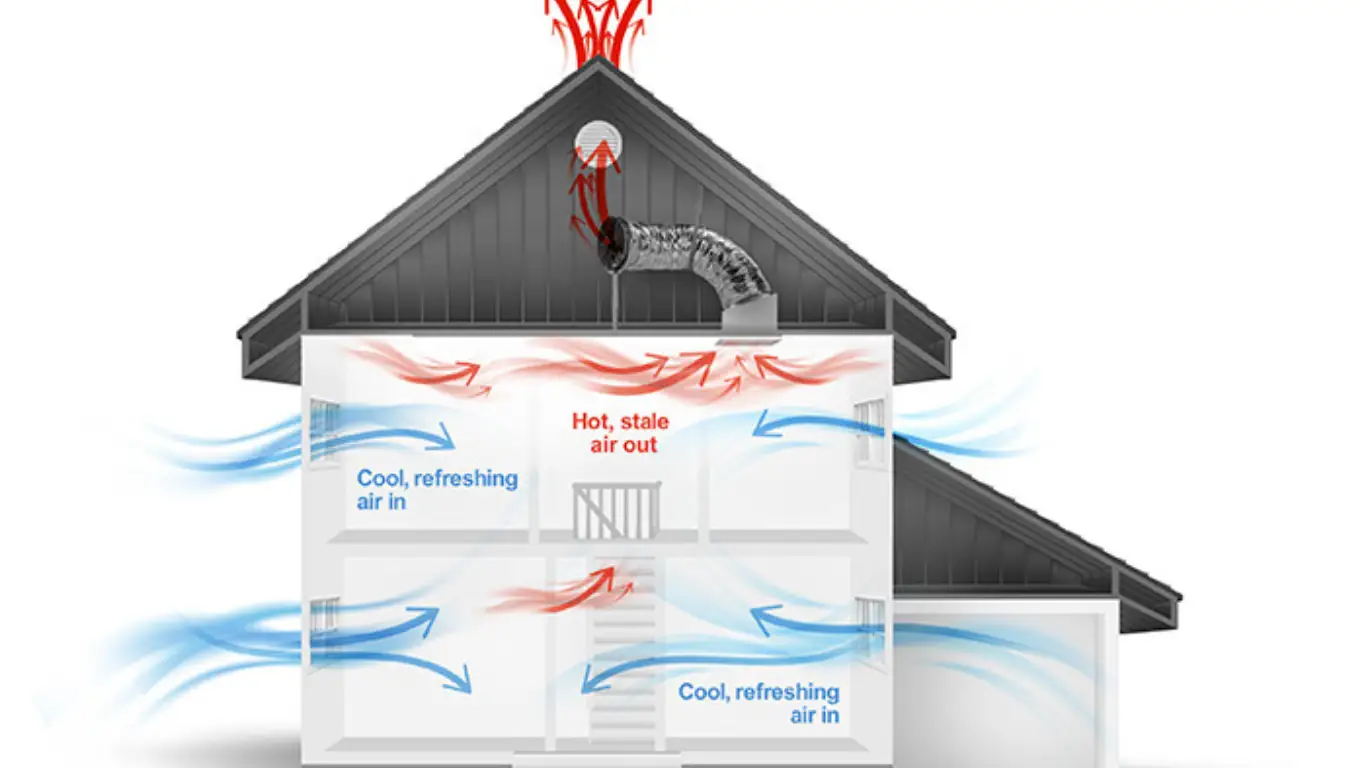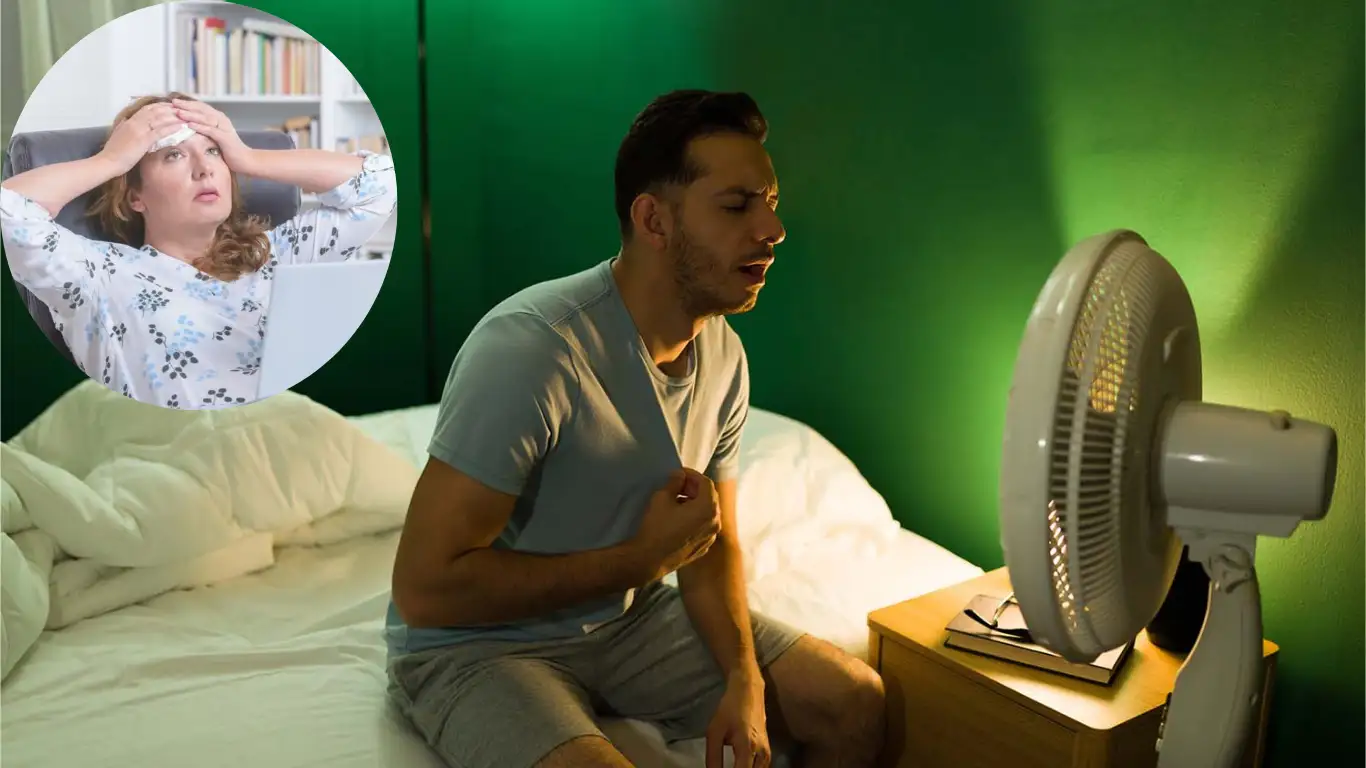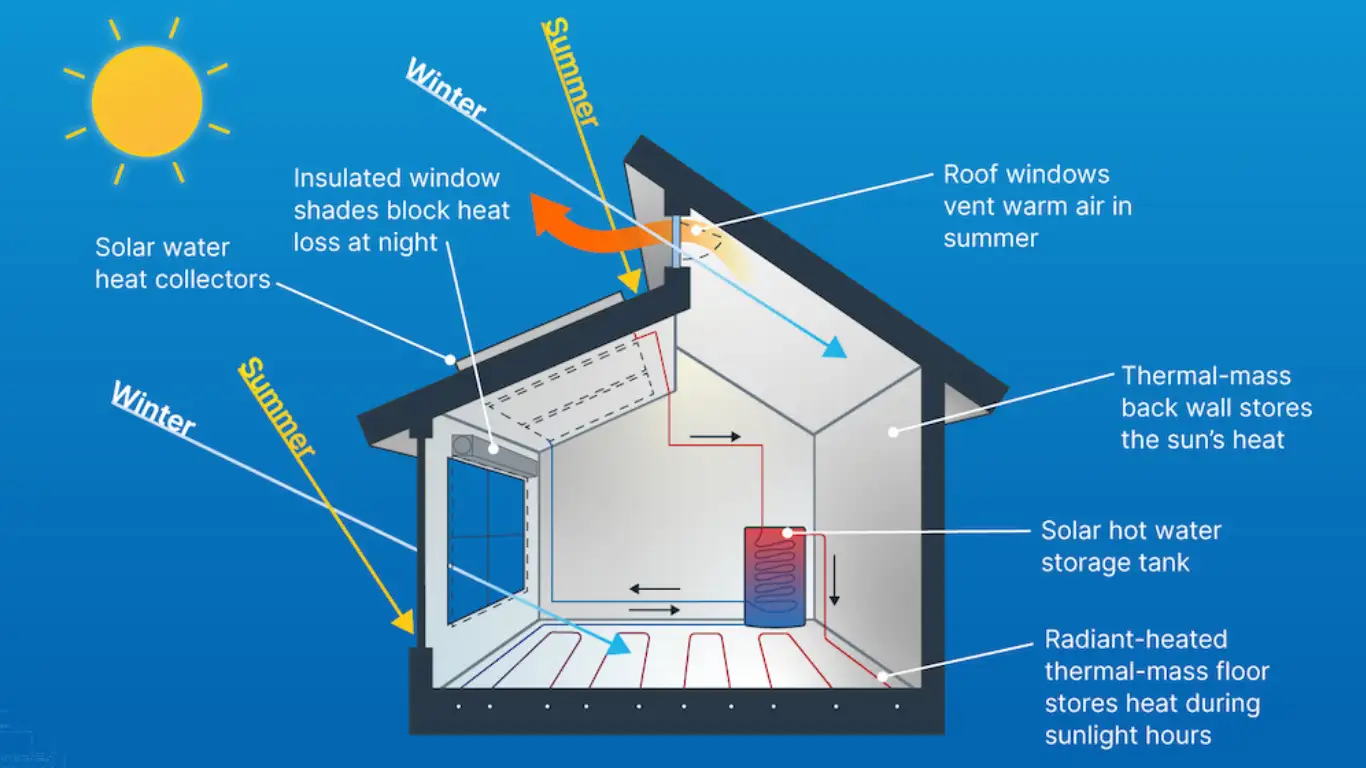Have you ever tossed and turned in bed, wondering why your house gets hot at night? It’s a frustrating issue that many homeowners encounter, particularly during the warmer months. Picture this: the sun sets, you expect things to cool down, but instead, your living room feels like a sauna. This nighttime heat in the house can make it hard to relax or get a good night’s sleep, leaving you feeling drained the next day.
The Science Behind Nighttime Heat in Homes

Ever wonder why your home feels like it’s baking even after sunset? The answer lies in basic science. During the day, sunlight pours in through windows and roofs, warming up everything inside. This is known as solar gain, and it’s a significant contributor to nighttime heat in the house. Think of your home as a giant sponge soaking up heat. Appliances like ovens, lights, and even your fridge add to this by generating their own warmth. By evening, all that energy has accumulated, making it tough for the indoor temperature to drop quickly.
Sun Exposure and Window Placement
Windows are like magnets for sunlight, especially when they face south or west. These directions catch the most intense afternoon rays, resulting in significant window heat gain. Without proper shading, that heat floods in and sticks around. Imagine your living room windows baking under the sun all day. By night, the glass and surrounding areas radiate the warmth stored during the day. If your home lacks trees or awnings, this effect intensifies, making rooms feel stuffy.
Poor Ventilation
Air needs to move to cool things down, but many homes trap it instead. Inadequate airflow means hot air can’t escape, building up pressure and temperature. This is a top cause of why your modren house gets hot at night. Attics are hotspots here. Without good roof ventilation, heat from the day rises and lingers, seeping back into living spaces. Think of it as a lid on a pot—remove it, and steam escapes. Poor vents lead to attic heat problems that radiate downward.
Insulation Issues
Insulation is a double-edged sword. Suppose it’s old, thin, or missing in spots, such as attics and walls, heat leaks in easily during the day and stays trapped at night. This significantly contributes to home heat retention. Areas like crawl spaces or basements are prone to these leaks. Gaps around house doors and windows let in warm air, while insufficient insulation holds it hostage. Upgrading can make a world of difference.
Heat-Generating Appliances and Electronics

Your gadgets aren’t innocent bystanders. TVs, computers, and even light bulbs generate heat, especially in the evening when they are in use. This adds to the indoor warmth, explaining why my house is hot at night after a marathon of movies. Kitchens are culprits too—cooking dinner generates steam and heat that lingers. Turning things off earlier helps, but many overlook this simple factor.
Roofing Material and Color
Dark roofs absorb sunlight like a black shirt on a hot day, heating your entire home. Materials like asphalt shingles hold onto that warmth, releasing it slowly at night. Roof design matters too. Flat or poorly vented roofs trap more heat than sloped ones with good airflow. Switching to lighter colors or reflective materials can curb this.
Humidity and Moisture Effects
Humidity acts like a blanket over your home. Moist air holds heat better than dry air, preventing natural cooling. In damp climates, this makes cooling your house at night a challenge. Showers, cooking, or even houseplants add indoor moisture, amplifying the effect. High humidity slows sweat evaporation, making you feel hotter even if the thermometer hasn’t budged. To summarize these causes, here’s a quick bulleted list of the top offenders:
- Sun-drenched windows without shades result in rapid heat gain.
- Stagnant air from blocked vents, trapping warmth inside.
- Worn-out insulation that fails to regulate temperatures.
- Evening gadget use adds unnecessary heat sources.
- Heat-absorbing roofs that radiate warmth downward.
- Sticky humidity is holding onto every bit of heat.
Recognizing these helps explain why my house gets hot at night. Which one rings true for your home? Let’s move on to how design plays a role in this.
How Your House Design Affects Nighttime Heat
Your home’s blueprint isn’t just about looks—it’s a big factor in why my house gets hot at night. Architectural choices influence how heat flows in and out, often in ways you might not notice at first. Start with the overall style. Modern homes with extensive glass might look sleek, but they invite window heat gain like no one’s business. Older designs with thick walls can act as thermal mass, storing daytime heat and releasing it slowly at night to provide nighttime warmth in the house.
Enhancing Ventilation

Fresh air is your best friend. Open windows during cooler evening hours to let breezes push out stagnant heat. Cross- house ventilation, which involves opening windows on opposite sides, creates a natural wind tunnel. Fans amplify this. Ceiling fans on a low setting circulate air without adding warmth. For tougher cases, install exhaust fans in kitchens or bathrooms to suck out hot, humid air. Attic vents are game-changers for attic heat problems. Ridge or soffit vents allow hot air to escape, preventing it from seeping into the downstairs area.
Improving Insulation and Air Sealing
Upgrade your insulation to modern standards. Adding fiberglass or foam in attics and house walls reduces home heat retention by keeping daytime warmth out. Seal gaps around doors, windows, and outlets with caulk or weather stripping. This prevents hot air infiltration, resulting in a noticeable reduction in nighttime heat in the house.
Window Treatments and Shading
Block the sun before it enters. Blackout curtains or reflective blinds reflect rays, cutting window heat gain by up to 30%. House exterior, such as awnings or solar screens, provide even better protection. They’re like sunglasses for your home. Switch to cool roofing. Reflective coatings bounce sunlight away, lowering roof temps by 50 degrees or more. Plant shade trees or consider a green roof with plants—these insulate naturally and reduce heat absorption. Unplug or turn off heat-makers before bed. Use energy-efficient LEDs instead of traditional incandescent bulbs, and refrain from running the dishwasher at night.
When to Consult Professionals

Sometimes, DIY fixes aren’t enough to explain why my house gets hot at night. Know the signs: if your home remains sweltering despite house basic changes, or if your energy bills spike mysteriously, it’s time to call the pros. An HVAC specialist can diagnose issues such as faulty ducts or inefficient systems that cause attic heat problems. They’ll ensure your house cooling setup works optimally.




